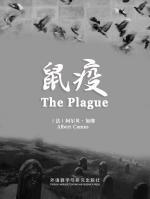Human In Plague
陆姝羽
Living in the fear of impermanent death and cruel plague, people find
that the most important thing is no longer the work that forces people
all the time, no longer the entertainment, but the feelings that have
been ignored all the time - "they now understand that if there is
anything in the world that is worth looking forward to forever and can
be obtained sometimes, it is the truth of the world." The master,
Dr. K ü Er, was a hero fighting with the God of death in the disaster.
He urged the mayor to issue a ban, called for the organization of rescue
workers, and fought in the first line of rescue. Camus doesn't want to
describe his behavior in terms of heroism. He thinks that the motivation
of urging Dr. rier to do so in a disaster is "they know that's the
only thing that needs to be done, and it's incredible not to make up
your mind at such a time." Camus treated heroism with indifference
- "but I am more willing to believe that if we pay too much
attention to noble behavior, it will turn out to be an indirect and
powerful praise of crime. Because it makes people think that noble
behavior is so valuable, only because it is like the morning star, so
ruthlessness and indifference are more often the driving force of human
behavior. " What Camus wanted to praise was human emotion. Whether
it was Cotal's extravagant desire for other people's care, Lambert's
desire to return home, or Dr. rier's help to patients, these were just
ordinary emotions. But because it is ordinary, and in ordinary times it
is ignored. So it's no surprise that Lambert's later transformation,
when he had the opportunity to leave, he chose to stay in the city to
help Rieu. "There is nothing in the world worth people's love for
it. But I don't know why, I also abandoned love Was it Leo's noble
behavior that moved him? no "I'm here whether I want to or not. The
trouble here has something to do with all of us. " It was still his
most natural feeling.




 京公网安备 11010802032529号
京公网安备 11010802032529号